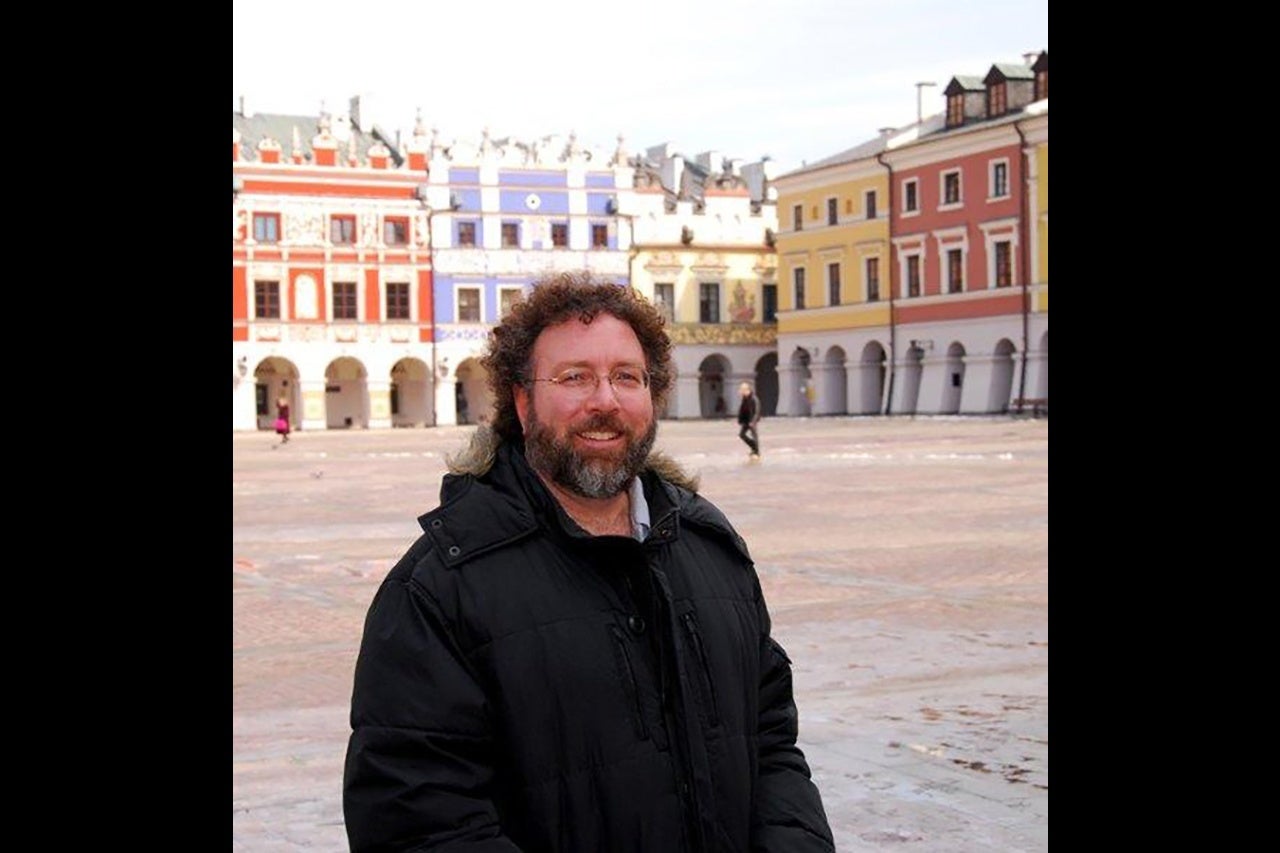College of Charleston Communication Professor Robert Westerfelhaus has been awarded his second Fulbright grant to teach at the Maria Curie-Sklodowska University (MCSU) in Lublin, Poland. After teaching as a Fulbright Fellow at the MCSU Instytut Anglistyk in 2009–10, he is returning this academic year as the Distinguished Chair in Humanities, the highest Fulbright designation.
“This Fulbright is such an amazing opportunity and honor for Robert! He is an incredible professor, and I know the students in Poland will enjoy learning in his classes,” says Jen Kopfman, associate dean of the School of Humanities and Social Sciences and former chair of the Department of Communication. “Even better, he’ll bring what he learns and experiences in Poland back to his classes here at the College of Charleston.”
Westerfelhaus, who is the third CofC faculty member to receive a Fulbright award for this academic year, says the experiences he had during his previous Fulbright Fellowship have certainly informed his teaching at the College. Especially the things he learned from his Polish students.
“The questions they asked, the observations they made and the insights they provided regarding American literature, history and popular culture taught me a great deal about my own culture,” he says, adding that, this year, his classes will examine contemporary American popular culture from the end of World War II until the present, with an emphasis on developments during the past decade. “My students and I will collaboratively explore various American views and versions of masculinity, the growing popularity of post-apocalyptic narratives, the American monomyth’s continuing influence across diverse genres and the evolving roles and representations of females in mainstream media. Together we will examine how these themes are expressed in literary fiction, biographical works, comic books, graphic novels, television series, video games and films.”
When he’s not teaching, Westerfelhaus will be giving invited presentations at colleges and universities around Poland, as well as exploring the country and its culture.
“I look forward to expanding my knowledge of Polish art, film, food, history, literature and music,” he says. “I welcome the chance to connect in person with old friends and to make new friends, to visit familiar places and explore new sites, and most especially to engage with students at MCSU.”
And he knows from previous trips to Poland that the experience will have a lasting impact.
“After completing my Fulbright I shall maintain the personal relationships and professional connections cultivated while in Poland, share academic and other resources with them, continue ongoing partnerships and start new collaborations and – hopefully – host Polish colleagues who are able to make their way to Charleston,” says Westerfelhaus. “Additionally, I will be able to introduce fresh material into the classes I teach at CofC as a result of my experiences abroad and the new knowledge gained through them.”
Westerfelhaus has taught courses in communication ethics, media criticism, rhetoric and communication theory, with a focus upon American popular culture, at the College of Charleston since 2002. He has received the Distinguished Faculty Advising Award; the Outstanding Graduate Faculty of the Year, Humanities and Social Sciences (HSS), ExCEL Award; the Graduate Faculty of the Year Award, Department of Communication; the Outstanding Faculty of the Year, HSS, ExCEL Award; and the Distinguished Communication Faculty Award. In addition, he served on the Fulbright Review Committee for Belgium, Luxembourg, EU and Poland for three years.
The Fulbright Program was created in 1946 to increase mutual understanding between the people of the United States and the people of other countries. Since then it has given over 400,000 students, scholars, teachers, artists and professionals of all backgrounds and fields the opportunity to study, teach and conduct research, exchange ideas and contribute to finding solutions to important international problems. Now the largest and most diverse international educational exchange program in the world, the Fulbright Program is funded primarily by an annual appropriation made by the U.S. Congress to the U.S. Department of State’s Bureau of Educational and Cultural Affairs.




